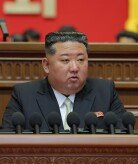[Opinion] An Inappropriate Pardon
[Opinion] An Inappropriate Pardon
Posted July. 27, 2006 03:01,
Pardon, legal philosopher Gustav Radbruch once wrote, is a bright ray of light that penetrates into the world of law from outside and sheds light on the cold darkness in it, and a wonder that arises in the world of law just as a wonder breaks down the principles of the nature. He viewed a pardon as a ray of hope that can melt down the loveless justice that can be derived from the stiffness of law.
With the Liberation Day of Korea (August 15th) nearing again this year, special pardons, early releases, and the rehabilitations of political figures are being discussed. The rehabilitation of Ahn Hee-jeong, one of the close acquaintances of President Roh Moo-hyun, is a major topic of the discussions. He has been referred to as the Hee-jeong to the left, Gwan-jae to the right of President Roh, and is a character that gives and takes influences with the president. When he was released from the prison at the end of 2004 after a full term of a year he was sentenced to for having obtained illegal political funds, President Roh invited him to dinner at Cheong Wa Dae the next day and showed tears during the two hours meal.
This is not the first time that the rehabilitation of Ahn is being talked about. He expressed a strong desire to be rehabilitated after paying off a penal charge of 490 million won right before the last years Liberation Day, and also waited for rehabilitation on March 1 Independence Movement Day. With the Liberation Day approaching this year, one of the leading members of the Uri Party is spurring the discussion, saying, Hee-jeong should be included whatsoever this time (in the pardoning rehabilitation). Hearing the names of the former representative officials of the opposition party being mentioned, we get the impression that there is a behind the scenes consensus between the political parties.
But when Gustav Radbruch referred to a pardon as a bright ray of light, he did not mean that it is fine to exercise the authority to give pardons out of personal affection or political calculations. Unlike the amnesty that requires the agreement of the National Assembly, a special pardon is solely the exclusive authority of the president, but so much the worse is the harm to the basis of the rule of law that occurs when a person with the authority exercises it wrongly in an arbitrary way.
In particular, the attempt to exercise pardoning authority to recover eligibility for elections and return to politics of a specific person or as one of the steps for personnel management to his taste will only leave scars in the authority of the judiciary and in the sentiments of the nation toward law. This is all the more so when it is President Roh, who had been proclaiming his will to root out the cozy relations between politics and business and political corruption, featuring the morality of the regime.
Yuk Jeong-su, Editorial Writer, sooya@donga.com






![한그릇 1만5000원 봄동비빔밥 ‘품절’…제2의 두쫀쿠?[요즘소비]](https://dimg.donga.com/c/138/175/90/1/wps/NEWS/IMAGE/2026/02/27/133437451.3.jpg)
